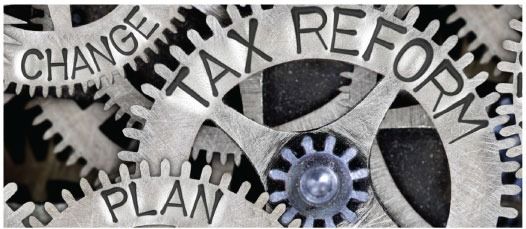- info@ficci.org.bd
- |
- +880248814801, +880248814802
- Contact Us
- |
- Become a Member
- |
- |
- |
- |
- |

In recent decades, Bangladesh has made remarkable economic progress and is actively working toward upgrading its status based on key economic indicators. Foreign Direct Investment (FDI) has played a significant role in unlocking economic potential, generating employment, and driving technological advancement. To gain further momentum in FDI, the country must optimise its tax structure-making it simpler and more investor-friend- ly-ensuring it fuels public revenue growth while enabling the private sector to thrive. A strong tax system strikes the right balance by broadening the tax base and improving compliance.
The nation's current fiscal model faces multiple challenges. One of the most concerning is its heavy reliance on indirect taxes, which account for the majority of the government's fiscal revenue. Such overdependence limits fiscal flexibility and exposes the economy to external shocks in vital sectors. Hence, it is both essential and strate- gic to diversify revenue sources and reduce the disruptions caused by burdensome sector-specific taxes.
Over the years, the government has made several efforts to modify taxation mechanisms in response to evolving economic needs. Since the early 2000s, numerous industries have experienced changes in tax policies aimed at increasing revenue and aligning with global practices. Initially, these reforms boosted government revenue while giving some sectors the space to scale operations. However, as taxes continued to rise-often without adequate consideration of consumer behaviour, enforcement capacity, or cost structures-the effectiveness of these policies began to diminish.

A critical example of this dynamic is found in the tobacco industry. Currently, the Supplementary Duty (SD) and Value Added Tax (VAT) from this industry alone account for nearly 10% of the national exchequer-significantly higher than the global average, where the tobacco sector contributes only around 1.5%. The industry's financial contribution becomes even more substantial when dividends, corporate income taxes, and other payments are considered. Despite this, the taxation model has become increasingly complex and burdensome for legitimate manufacturers.
Between FY 2013-14 and FY 2023-24, the average excise rate on cigarette prices rose from 66% to 77%, and in January 2025 alone, it reached 83%. These rates far exceed the World Health Organization's recommended threshold of 75% of retail price1 - a benchmark typically met by roughly 20% of countries in the world which are mostly high-income countries with diversified economies and strong enforcement capabilities. Bangladesh, however, remains a developing country with limited capacity to combat illicit trade.
Moreover, the current tax structure leaves minimal operating margins for legal manufacturers. High tax burdens make it difficult for businesses to cover basic costs, let alone invest in sustainability, employment growth or innovation. If left unaddressed, this scenario could lead to decreased FDI, workforce reductions, and reduced contributions from historically dependable revenue streams. Notably, the issue is not limited to the tobacco industry. A recent study by the Centre for Policy Dialogue found that around 82% of businesses in Bangladesh believe the current tax rate imposed on them is inequitable. 2
Recognising the urgency for effective reform, we must work together to amend the tax structure. Any amend- ment should be transparent, sustainable, and mutually beneficial-ensuring that both the government and industry can achieve their respective objectives. A more balanced tax framework would allow the government to maintain strong revenue generation without pushing compliant businesses to the brink. At the same time, a sustainable tax structure will create a predictable operating envrionemnt and sustainable revenue source for the government - a win win solution for both parties. Tax policy should be calibrated in line with economic indicators such as the consumer price index, inflation, and household income, to ensure that price hikes do not outpace purchasing power and drive demand toward illicit markets.

The government should also adopt a consultative approach to develop a more effective and inclusive fiscal frame- work. This would ensure that companies, especially those in highly regulated sectors, are able to engage in dialogue before any significant changes to tax or pricing are introduced. Such an approach would also foster greater ownership and shared responsibility among stakeholders. Engaging companies and industry players helps with proactive planning and strengthens vital partnerships, reducing the risk of unintended consequences such as the expansion of illicit trade. Simultaneously, broader efforts to improve tax compliance in underperforming sectors will help reduce the overreliance on industries that already contribute significantly. Bangladesh currently ranks among the lowest in the world in terms of tax-to-GDP ratio-just under 9%-which is far below regional and global recommendations. 3 Introducing digital compliance tools, incentivising the formalisation of informal businesses, and strengthening the National Board of Revenue (NBR) could unlock substantial new revenue streams and relieve pressure on already compliant sectors.
The country's path to sustainable economic development requires a more balanced and robust tax system. For industries like tobacco, this means recognising the limits of the current model and moving toward a NBR and industry wide collaborative approach. Tax policy must be rooted in economic realism and supported by strong enforcement, so that fiscal strategies empower rather than hinder industrial growth.
By reforming tax structures and adopting a more balanced policy in alignment with all relevant stakeholders, the government can boost revenue collection while reinforcing its commitment to building an inclusive and resilient economy capable of meeting future challenges.





